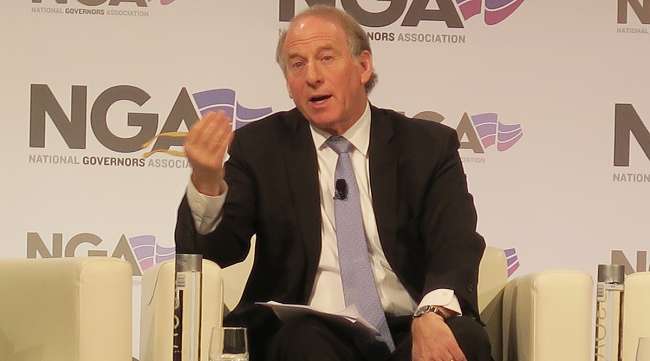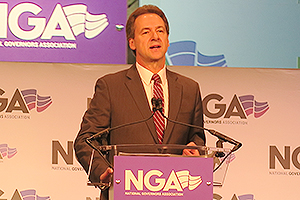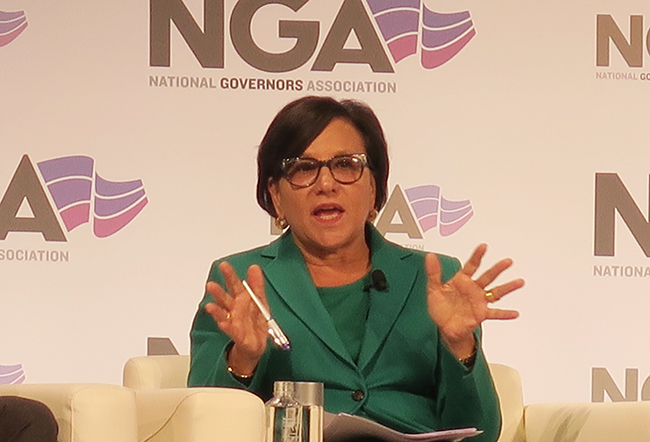Staff Reporter
Training Programs Vital as AI Becomes More Prevalent, Experts Say

WASHINGTON — Education and training programs can help members of the workforce adjust to the difficulties that artificial intelligence will present to certain jobs, said policy expert Richard Haass, president of the Council on Foreign Relations, a nonpartisan organization.
He addressed the National Governors Association’s winter meeting here Feb. 23.
Montana Gov. Steve Bullock, the chairman of the association, said 1.4 million workers may be displaced by technology in the next decade.
MORE FROM NGA: Leaders discuss USMCA future
And Haass said that AI will affect a wide spectrum of workforce niches. Some freight haulers have been apprehensive about autonomous vehicle technologies because they foster the perception that trucks soon may be driving themselves.
MORE FROM NGA: Could trucking be testing ground for vehicles miles traveled program?
“We ought to think about what it will take people to live in a world where millions of truck driving jobs, Uber [driving] and tractor [driving] jobs are eliminated [and] most repetitive industrial tasks are taken over by robots,” Haass said. “A full range of jobs, from reading MRIs and X-rays to possibly what thousands of legal assistant do now, are all taken over by AI.”
Education and retraining programs are vital to closing gaps in skill levels for jobs threatened by AI, Haass said.
He said such programs are especially important for mid-career employees who find their jobs are slowly being replaced by autonomous technology. He also encouraged state leaders to make training programs more accessible through initiatives such as mid-career education programs for government employees and tax credits for people involved in research and development.

Bullock by Eleanor Lamb/Transport Topics
Haass said employers and employees need to abandon the mindset that people can front-load education and live off of that for the rest of their lives. Doctors, for example, continue to learn about new advancements in their fields long after they graduate from medical school.
“We have the tank of gas mentality for education. We fill her up and we drive down the highway of life for the next 50 years,” Haass said. “There’s zero chance that initial tank of gas will see us through the next 50 years.”
Bullock has selected “Good Jobs for All Americans” whereby the governor’s association hosts regional workshops with elected officials, business leaders and researchers to share ideas about workforce development.
Bullock said that governors have the unique ability to bring together different sectors of industry and educational institutions.
Montana’s @GovernorBullock kicks off the @NatlGovsAssoc’s winter meeting #WeTheStates pic.twitter.com/oiWHGNF3cX — Eleanor Lamb (@eleanorannlamb) February 23, 2019
“The private sector must do more to find good jobs and pathways for workers, but they certainly can’t do it alone,” Bullock said. “As governors, we’re well-positioned to bring together employers, educators and workers to build a new infrastructure for the jobs of the future.”
Former Secretary of Commerce Penny Pritzker, who also spoke, encouraged governors to conduct reviews of the skills gaps that exist in their states.

Pritzker by Eleanor Lamb/Transport Topics
She said that leaders can best address skills needs if they understand the areas in which their communities are lacking. She said community colleges provide vital resources that governors should become familiar with.
“You have to start with the best possible data about what are your job needs and also what are your community colleges and other training organizations offering,” Pritzker said. “You as governors are the people who can bring together your educational institutions, your businesses [and] your [nongovernmental organizations] that provide mentorships.”


